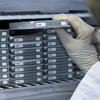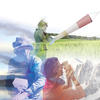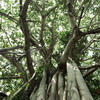You are here
Alain Fuchs: “Our most potent weapons: intelligence and knowledge”

Alain Fuchs, President of the CNRS, reacts to the terror attacks that struck Paris on November 13:
“The scale of the trauma caused by the recent attacks in Paris tends to make any initiative with no immediate effect look derisory. Yet five days after the tragedy that struck France and the official declarations that followed, the scientific community is once more faced with the essential issue of gaining a detailed and thorough understanding of the phenomena at play today.
This understanding is crucial if we are to combat these phenomena more effectively—without being blinded by anger or resentment, which is the hallmark of terrorism and its perpetrators—by using our most potent weapons: intelligence and knowledge, acquired through scientific study, distance and perspective. It is science that makes it possible to elucidate what these murders target and strike in all of us and beyond, the world over. While it cannot provide solutions, science at least opens up new avenues of analysis and ways of thinking.
We are not starting from scratch.
'How should research evolve in the wake of Charlie?' was the question we asked less than a year ago, calling for a 'better transfer' of existing research work toward public decision-makers and inviting the relevant researchers' communities to become involved in new or neglected research. We gathered experience in 'community service,' a form of intervention by a research institution in an urban environment, which enables the whole academic community to make use of its creativeness and expertise for the benefit of society. The CNRS supported several research projects on risks to human safety, which should not be limited to the military or industrial sphere, nor solely focus on the 'feeling of insecurity.'
We also initiated studies on human behavior, both at individual and collective level, which had been the subject of little research in France until then, notwithstanding their importance for analyzing and preventing violence. We also looked at radicalization processes and trajectories. Having identified our own weaknesses, we are committed to support studies on Islam, which are under threat in France, even though they are on the increase everywhere else.
These first responses, implemented in close collaboration with the French National Alliance for the Humanities and Social Sciences (ATHENA), which brings together all research players in these fields, are more topical than ever. Yet we no doubt need to go further, both in our work and in the way we organize our efforts. Hence my call for proposals, addressed to the academic community as a whole, on all issues potentially related to the challenges posed to our societies by the attacks and their consequences, and which could pave the way for new solutions—whether social, technical or digital.
The CNRS will examine all proposals. The objective is to fill unoccupied territory, to answer questions involving several disciplines, to use participative methods and individual expertise. Each project selected, based on a rigorous, simple and rapid procedure, will be granted financial support so as to yield results as of 2016.
Research and politics are distinct. But I believe this is a rare opportunity for researchers to express a form of solidarity with all those who, directly or indirectly, have been affected by the terrible events which, as we all know, can happen again.”
Research projects (3 to 5 pages maximum) must be sent in electronic (pdf) format to:
attentats-recherche@cnrs.fr
Projects will be examined as they are submitted. There is no standard form.











